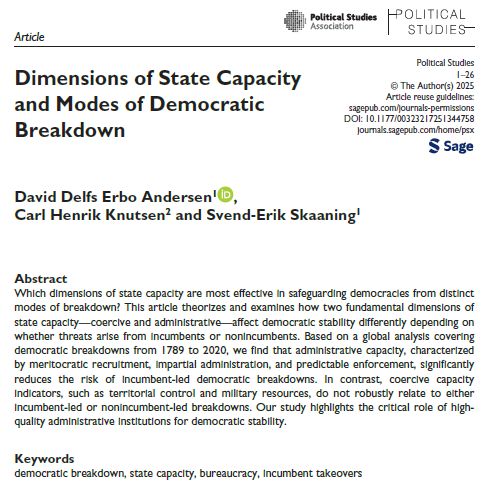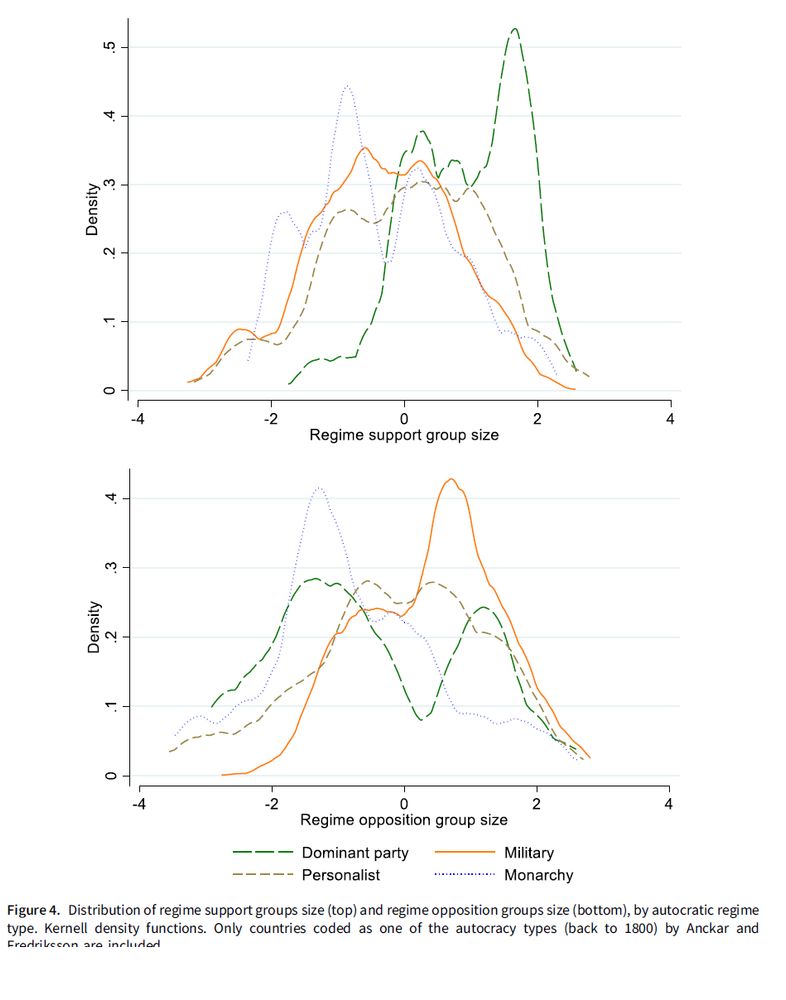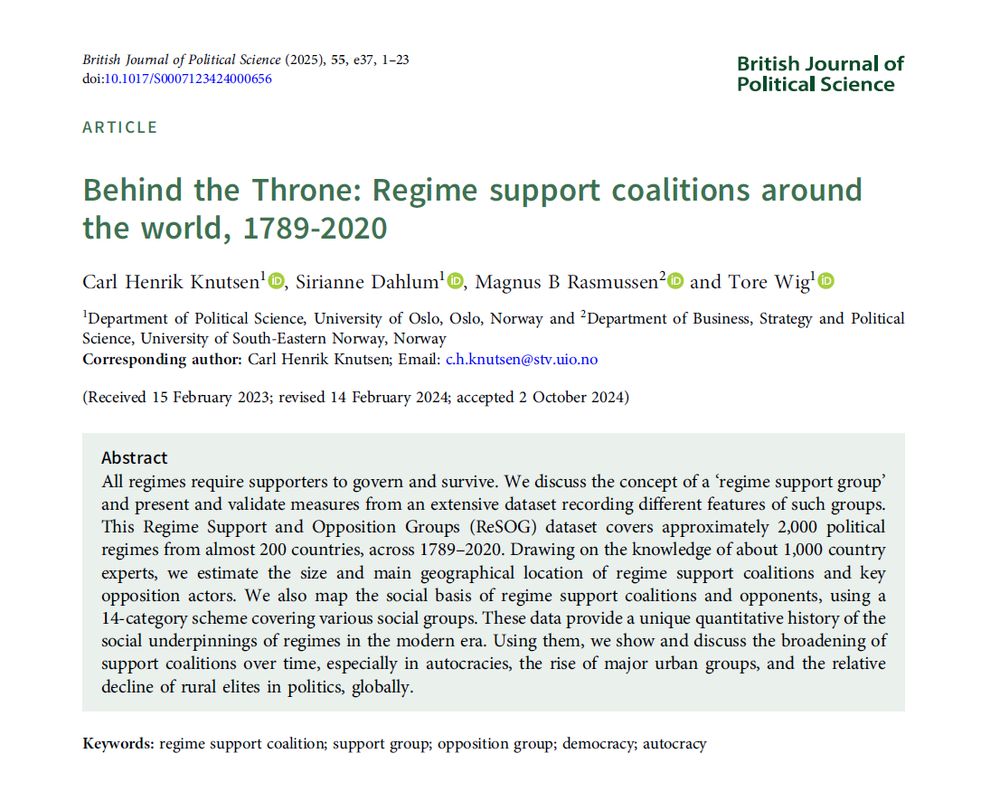
global.oup.com/academic/pro...

global.oup.com/academic/pro...
In this (published today) @cpsjournal.bsky.social article, @sirianned.bsky.social , @magnusrasmussen.bsky.social , and @torewig.bsky.social I answer "Yes" to both Qs.

In this (published today) @cpsjournal.bsky.social article, @sirianned.bsky.social , @magnusrasmussen.bsky.social , and @torewig.bsky.social I answer "Yes" to both Qs.
Yet, in an article just published in @polstudies.bsky.social , David Andersen, @skaaning.bsky.social and I highlight important nuances to this general relationship.

Yet, in an article just published in @polstudies.bsky.social , David Andersen, @skaaning.bsky.social and I highlight important nuances to this general relationship.
Published today in @ejir.bsky.social! On business elites in politics & international conflict

Published today in @ejir.bsky.social! On business elites in politics & international conflict




Co-authored with @sirianned.bsky.social , @magnusrasmussen.bsky.social and @torewig.bsky.social
Here comes a relatively long thread (as is appropriate for a long-term project)

Co-authored with @sirianned.bsky.social , @magnusrasmussen.bsky.social and @torewig.bsky.social
Here comes a relatively long thread (as is appropriate for a long-term project)
@vldjuve.bsky.social and my new JCR article👇

@vldjuve.bsky.social and my new JCR article👇
Also seems like a good opportunity to promote the original article: www.cambridge.org/core/journal...


Also seems like a good opportunity to promote the original article: www.cambridge.org/core/journal...
It’s published online today alongside several others in a larger symposium in @pspolisci.bsky.social

It’s published online today alongside several others in a larger symposium in @pspolisci.bsky.social
The paperback version of «Why democracies develop and decline».

The paperback version of «Why democracies develop and decline».
polisky dictatorsky

polisky dictatorsky



Asmund Rygh & my study – just published in Multinational Business Review – addresses these Qs using data on Norwegian MNEs' FDI, 1990-2006 🧵

Asmund Rygh & my study – just published in Multinational Business Review – addresses these Qs using data on Norwegian MNEs' FDI, 1990-2006 🧵

